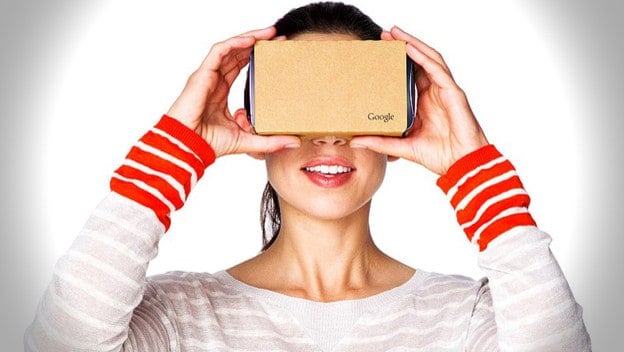Finally, we can see the terrifying beauty of the world’s largest social network combined with VR technology. On October 6, 2016 Mark Zuckerburg himself demoed a very exciting new feature of the Oculus. Much like a Mii, you can create an avatar for the Oculus to look just like you. But this feature isn’t just about video games. You can create rooms and parties of up to eight people and quite literally just hang out. With the new technology of the Oculus Touch controller, you can use these rooms to watch movies, play minigames, answer phone calls, take photos, or just chat. In the demo, Zuckerberg chatted with two other people, demonstrating how the avatars were able to track gestures, lip movements, and expressions. After that, they went to various rooms (one being Mars, which was fairly cool), played cards, chess, and even a game of fencing. In the latter, one person drew himself a sword with a pen and wielded that with ease. The details of how all this works have not yet been revealed, but it’s clearly something Facebook is working towards.
I think this is all very exciting and I can’t wait to try it out myself, but it also reminded me vividly of the film Wall-E . There is a brief scene in the film where two people are using something like Facetime, despite being right next to each other. I feel this new type of social interaction in Oculus might have similar effects, an isolation from human interaction. As Gina Vega and Louis Brennan state in their article titled Isolation and technology: the human disconnect , “from medieval times to the Renaissance, economic needs were subordinated to human needs, resulting in little or no competition and great solidarity along with a notable lack of individual freedom and permanent connection to social roles. As the growth of capital and wealth created a moneyed class during the Renaissance period, wealth became more important than established social roles”. Vega and Brennan are connecting the isolating effect of technology all the way back to the Renaissance, citing that “economic needs” have long been held above “human needs.”
A more obvious example from the past (for the sake of understandability) would be the invention of the assembly line, where the worker became nothing more a tool to insert piece A into slot B. I can personally attest to this, as the technology that allows us to scan barcodes makes it very easy for a cashier and customer to hardly speak to each other. I certainly don’t remember their faces, and they probably don’t remember me. We sometimes struggle to force a human interaction, but we are always limited by time. It’s my job to serve as many customers as fast as possible – I can’t stop to exchange recipes, as it were.
Though Vega and Brennan focus on technology in the workplace, I think the same logic can definitely be applied to social media. For example, one of the best ways to figure out when your friend’s birthday is, is to look it up on Facebook. The site even has the convenient feature of sending you a notification when a birthday happens. You certainly don’t bother asking your friend when you can find the date so easily. Furthermore, millennials have often been accused of never letting go of our phones, constantly texting even when we’re in the company of our friends.

Zuckerberg’s new Oculus features can bring entire social interactions to occur virtually right in your home – you never have to leave. On one hand, this can be abused and could erase physical human interaction entirely. On the other hand, it’s a far more interactive and “real” way of socializing without having to leave your home. I know I’m certainly grateful for my social media – I’d never speak with my friends otherwise. I go to work, I come home, I write my other two jobs – my schedule barely leaves enough time to spend with my wife. But Facebook, Skype, Miitomo, and more help me interact with people while still working. It’s much easier for me to answer a message than to focus on physically stepping away from my work to have a conversation. So when I’m busy, social media is very important to me. When I’m not, I assure you I definitely love to go to outside and socialize there instead.
The Oculus might very well become quite popular, coming from Zuckerberg. That man can probably do anything at this point. Therefore, I think it’s important to keep in mind the balance between technology and physical human interaction. Whether we need physical interaction is up to psychologists, but I think it should based on individual cases. There are plenty of serious introverts who are perfectly happy socializing purely in online forms and despise physical human interaction. There’s nothing wrong with that, or wherever you are in the spectrum. So for now, Oculus sounds like a great innovation in social media that we might have to be a little cautious about.
